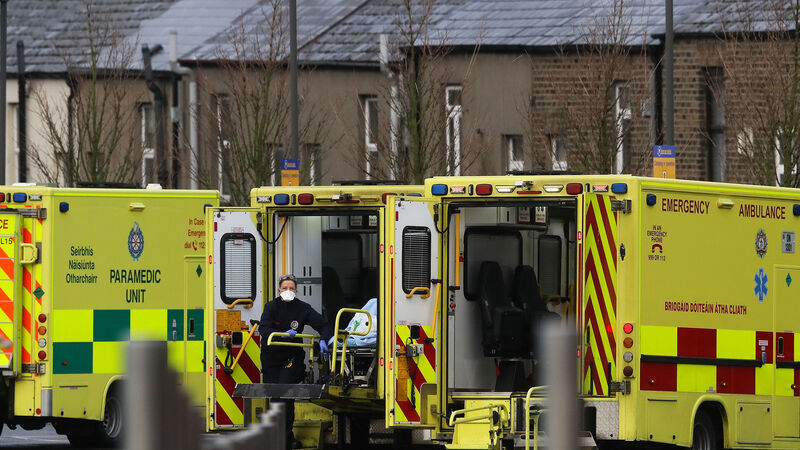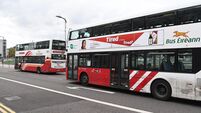Level of PCR testing is 'phenomenal', says HSE

HSE chief Paul Reid has told the Oireachtas Joint Committee on Health that the Irish health system is under ‘very serious pressure’ (Brian Lawless/PA)
The HSE is using all available measures to meet "phenomenal" demand for PCR Covid-19 testing, its chief executive has told an Oireachtas committee.
Paul Reid was before the Health Committee to update on the issues facing acute hospitals.
He was pressed on the need for PCR testing across the country and the fact that many testing centres have been booked out for days.
Sinn Féin's David Cullinane said people “have to travel if they want to get a PCR test more quickly, outside the entire region” and asked Mr Reid to “focus on the counties and regions where we have a particular problem".
In response, Mr Reid defended the testing system, saying that the proportion of people being tested is “phenomenal” compared with the population of Ireland. He said 82% of people are able to access "first-day" appointments but acknowledged that some are being forced to wait.
“We now, over the past seven days, have 210,000 PCR lab tests completed in our labs. We are aiming to prioritise clinical assessments, obviously referrals from GPs and symptomatic people."
Mr Reid said 26,000 tests had been carried out on Monday alone and that extra staff are being deployed, as well as using capacity from private companies.
He said the spike in demand will impact people.
“I want to fully acknowledge the pressure and demand that’s on it and the delays people will experience,” he said.
The HSE head also told the committee that those in their 50s are not expected to receive booster jabs until next month or January. He said the organisation will “move through the 50s at the end of December or early January".
Mr Reid said the HSE is still awaiting advice from NIAC on the timeframe for boosters for people who got the one-shot Johnson and Johnson vaccine.
He told the committee that over 630,000 additional vaccine doses have been administered, including 560,000 boosters and 72,000 to people who are immunocompromised. Weekly capacity of 230,000 has been reached, he added, with the aim of getting to 270,000 per week.
Mr Reid said that unvaccinated people are taking up a "highly disproportionate" number of beds in intensive care units across the country.
"If you take the adult population, only about 7% haven't got two vaccines. That's a highly disproportionate number of people we have in hospital, for 7% of the adult population to represent close to 55% of our ICU capacity."
Earlier, Mr Reid told the committee that the public hospital system is "relying" on private hospitals to deal with emergencies.
"A significant focus is being placed on using private hospital capacity to deal with these waiting lists. However, public hospitals are also relying on access to private hospitals to support emergency workload pressures."
Mr Reid told the committee that the strain being placed on hospitals due to the virus has meant the cancellation of elective procedures.
“The entire health system, both acute hospitals and community, are now under very serious pressure,” he said.





